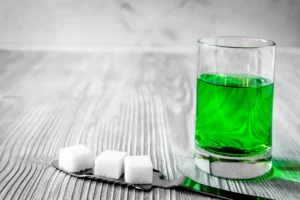
Healthcare professionals play a critical role in monitoring the health of patients undergoing alcohol https://ecosoberhouse.com/ detox. A key aspect of their role involves regularly assessing vital signs and withdrawal symptoms to manage the detox process safely and effectively. Anticonvulsants are increasingly recognized as an effective option for treating alcohol withdrawal syndrome (AWS), particularly in preventing seizures. AWS can induce severe neuroplastic changes in the brain, leading to acute withdrawal symptoms and increasing the risk of relapse.

Changes in the brain
Other factors may also affect whether Epidiolex is a good treatment option for you. Junk food may be tempting, but a healthy diet — primarily fruits and vegetables — can reduce a number of symptoms, including mood swings. Nutrition is a crucial component of recovery, especially for those who have neglected all aspects of their health for long periods of time. Prescription drug use has drastically increased since 2000, with a rising number of people abusing substances such as codeine, OxyContin and methadone.

Risk factors
An outpatient alcohol detox program may be suitable for people with mild alcohol dependence, those with a strong support system, or those who lack access to inpatient care. People with chronic or severe alcoholism can be at risk for severe withdrawal symptoms, including seizures. After completing drug and alcohol detox, most people will need to transition to a residential or outpatient recovery program to continue treatment. A healthcare provider will also go over your personal risk factors, health conditions, and any other important information you may need to know before entering treatment. There are a range of side effects that may occur as the body adjusts to the absence of a substance.
Does Epidiolex cause weight gain?
- Once you’ve been addicted to a drug, you’re at high risk of falling back into a pattern of addiction.
- Theories suggest that for certain people drinking has a different and stronger impact that can lead to alcohol use disorder.
- The detoxification process and timeline will differ for each person depending on the type of substance being abused and the severity of the addiction.
These first few weeks are critical because they are when the risk of relapse is highest. Over time, however, the body builds a tolerance to alcohol, and a person may have to drink more and more to get the same feeling. Meanwhile, the brain is producing more and more neurotransmitters, making a person further imbalanced. The main management for severe symptoms is long-acting benzodiazepines — typically IV diazepam or IV lorazepam.
- Know that your provider will be there to support you, not to judge you.
- Supportive care, including hydration, nutrition, and vitamin supplementation, is also integral to detox.
- There are many resources available to help, including peer support groups, counseling, therapy, and inpatient rehabilitation.
Alcohol detox medications are a critical component in the management of alcohol withdrawal, a potentially life-threatening condition. Blood pressure, pulse, and alcohol breath analysis should be obtained whenever possible. The assessment should also include a validated measure of withdrawal symptom severity, ideally with the same instrument alcohol detox side effects as the initial assessment. Outpatient treatment may be available for mild-to-moderate symptoms of alcohol withdrawal; however, should symptoms become severe, inpatient care may be required. Medical supervision is a critical component of the alcohol detoxification process. It ensures the safety and well-being of individuals as they undergo withdrawal from alcohol.

Comentarios recientes